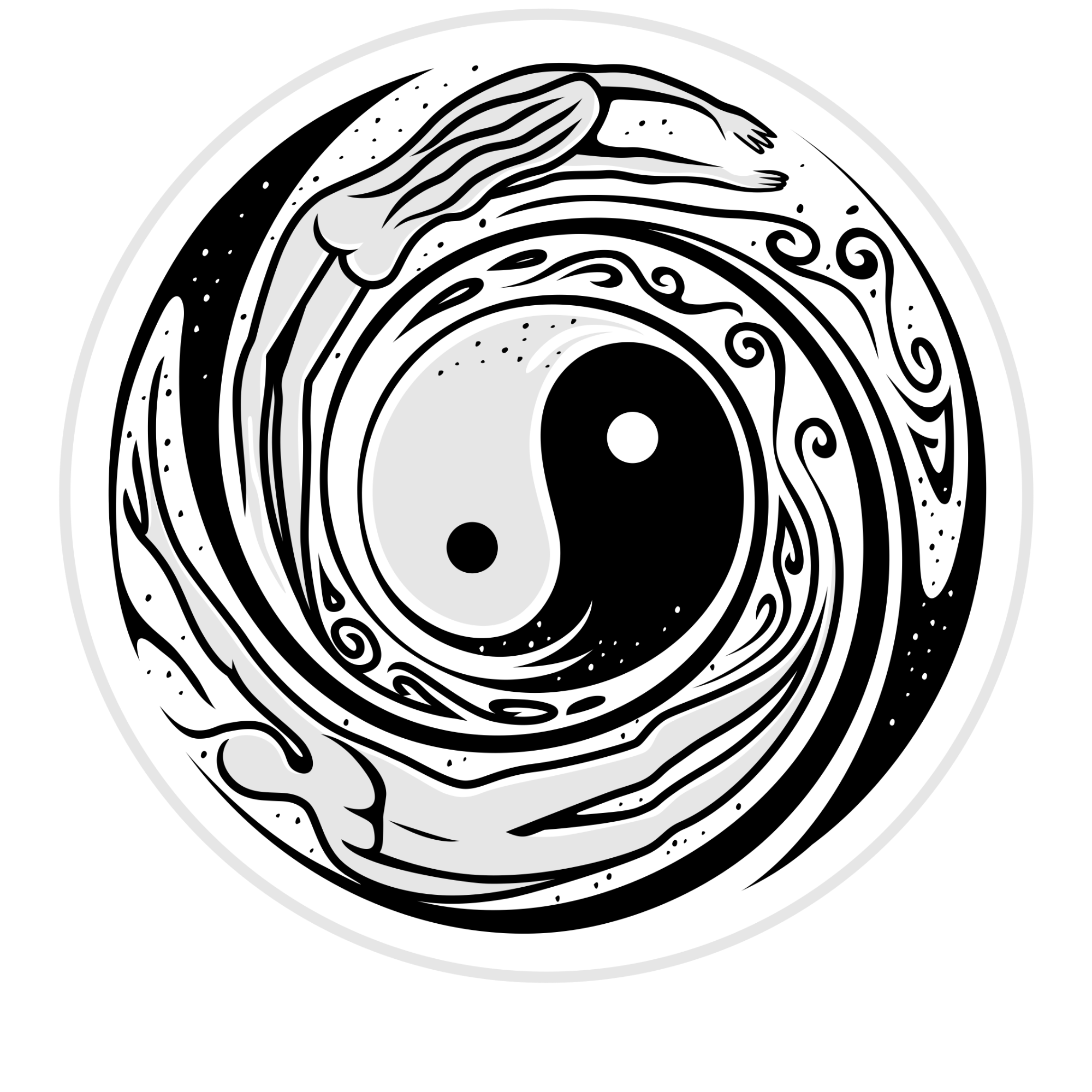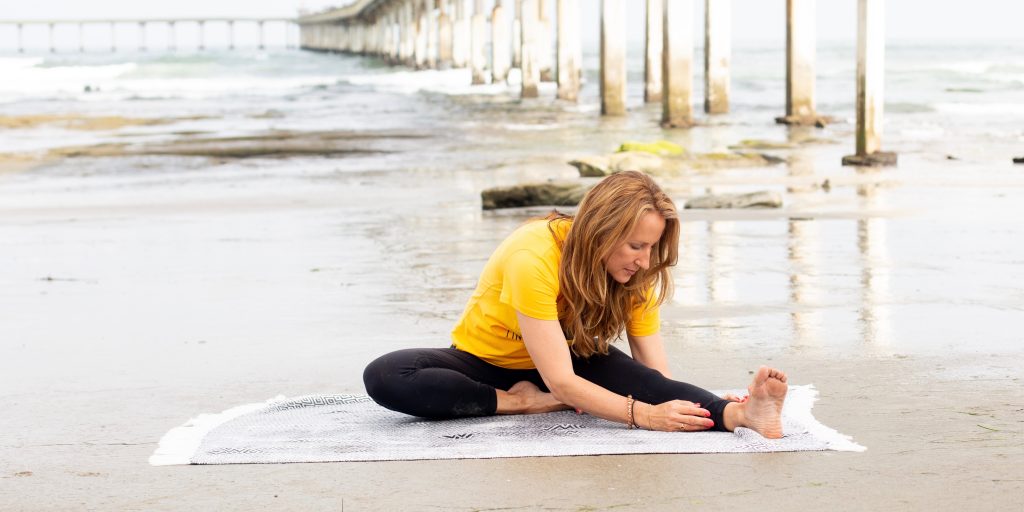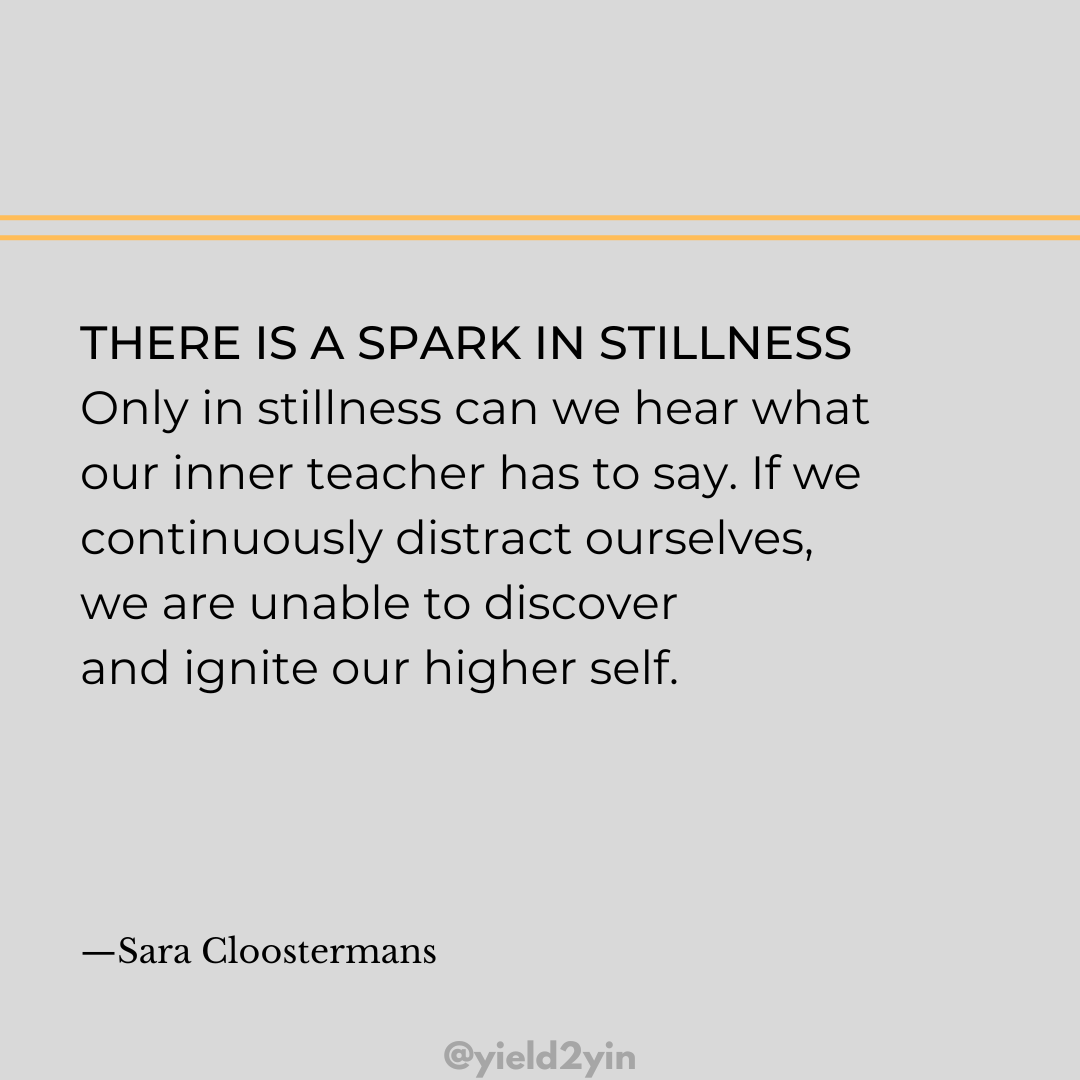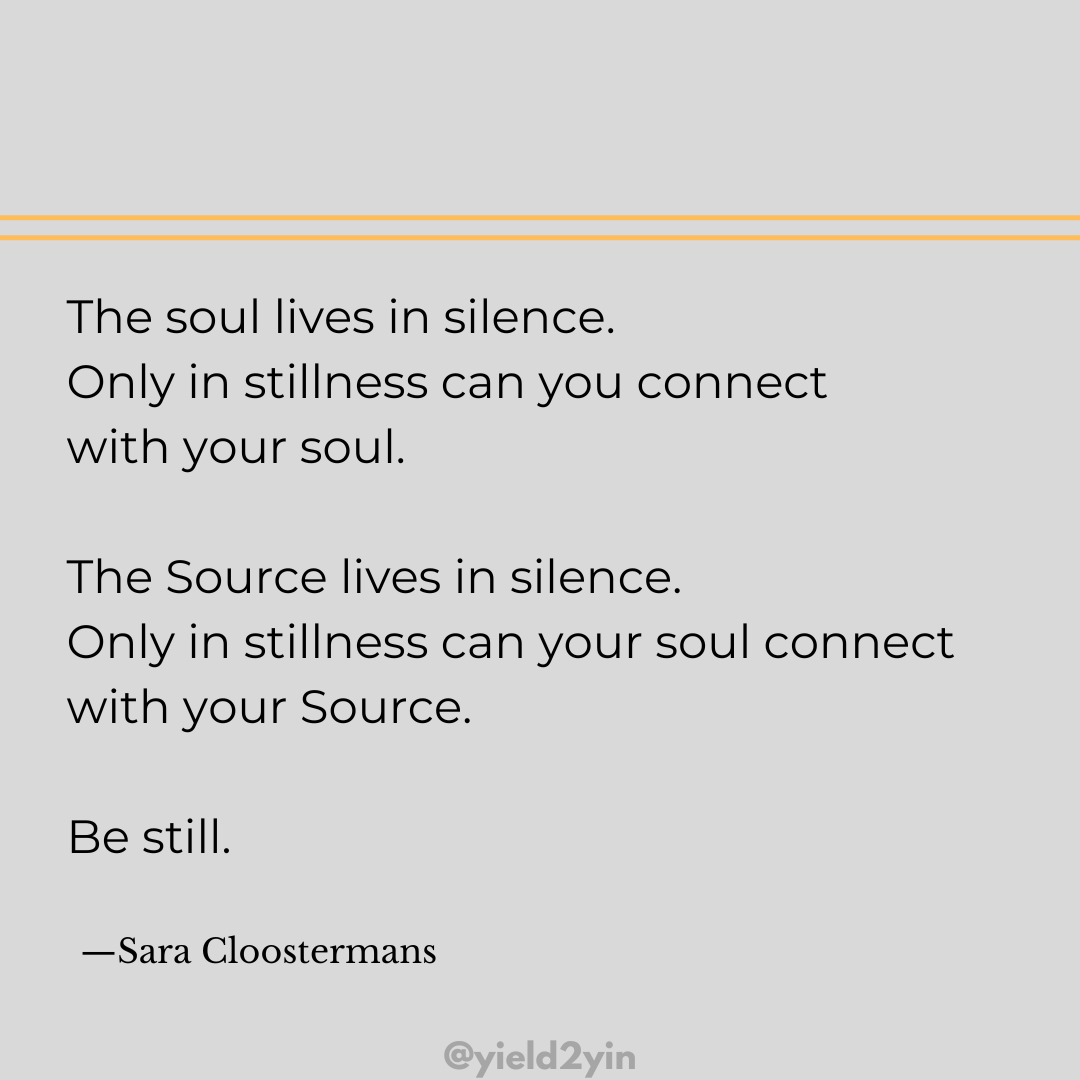When I started practicing yin yoga, I realized I had never come across an approach to healing that is so aligned with the approach I use when conducting therapy. The main similarity is the 3 principles of yin yoga, which is also my yield to yin approach to therapy.
Three Principles of Yin Yoga by Sarah Powers
- Find your edge and lean into the sensations that come up (4 or 5 out of 10 on an intensity scale – discomfort, not pain**)
- Resolve to remain still (in the present moment, no distractions) – practice the art of stillness while taking slow, deep, meditative breaths
- Hold the pose and spend time in this space (typically between 3 and 5 minutes – up to 20 minutes) to yield to the sensations, feelings, and thoughts
BOTTOM-UP APPROACH TO HEALING:
healing from the primal base of the brain (brainstem, limbic system)
= bodily sensations + feelings
No pain (discomfort**), no gain
Jane Fonda
Three Yield to Yin Principles of the Therapeutic Process by Sara Cloostermans
- Find your edge and lean into the thoughts (perceptions) and feelings (subjective experiences) that come up – (4 or 5 out of 10 on an intensity scale – uncomfortable, not retraumatizing**)
- Share the discomfort** with your therapist, then sit with it together (in the present moment, no distractions) while both taking slow, deep, and meditative breaths
- Spend time in this safe holding space (up to 20 minutes) to yield to the thoughts (perceptions become observations), feelings (subjective experiences become objective experiences), and sensations (seemingly intolerable or uncomfortable sensations become tolerable or comfortable)
TOP-DOWN APPROACH TO HEALING:
healing from the cognitive frontal lobes of the brain first
= thoughts + emotional regulation
“No feeling, no healing”
Sara Cloostermans
**Understanding Discomfort vs. Pain
Both physical pain AND emotional trauma are stored in our bodies and minds. If not taken care of in a gentle and loving way, they add to the development of stagnation of energy, which creates energetic blockages. It is these blockages that lead to discomfort and pain. Pain can feel so intense that it seems unmanageable and intolerable.
Working through discomfort / being uncomfortable are “growing pains.” These pains help us process and integrate our experiences, so we can let be, let go, heal, move forward, and expand.
Struggling through actual pain (6 to 10 out of 10 on an intensity scale), however, is highly discouraged since it does the opposite: it leads to chronic pain / complex trauma = “issues in the tissues.”


What Are the Upsides of Yielding to Yin?
- When we yield to yin, we carve out time to sit in silence and lean into our shadow side. Even though it may initially feel uncomfortable, and sometimes even intolerable, it is the only way to connect with our True Self.
- When we yield to yin, we mindfully create space to listen to our inner voice—our fears and worries, our needs and wants, our hopes and dreams, as well as our innermost passions and desires. We give ourselves the opportunity to get to know our Inner Self.
- Yielding to yin requires stillness. Only in stillness can we hear what our Inner Teacher has to say. If we continuously distract ourselves, we are unable to discover and ignite our Higher Self. There is a spark in stillness – it will bring out our imagination and creativity, so we can live a more authentic and purposeful life.
- Yielding to yin provides repair/restoration, recharge/replenishment, and healing/rejuvenation of the body, mind, and soul. When we approach life mindfully and holistically, gratification may be delayed. Yet, ultimately a yield to yin approach provides more freedom, including emotional freedom. With more emotional freedom, we feel pleasure and happiness more intensely and purely—your Pure Self.
- Yielding to yin teaches us to live within our boundaries. We learn to recognize that respecting our limitations is a strength, not a weakness. This requires courage and awareness, both self-awareness and other-awareness. It also requires a high intellect, especially emotional intelligence and wisdom, referring to our Wise Self—the wisdom body.
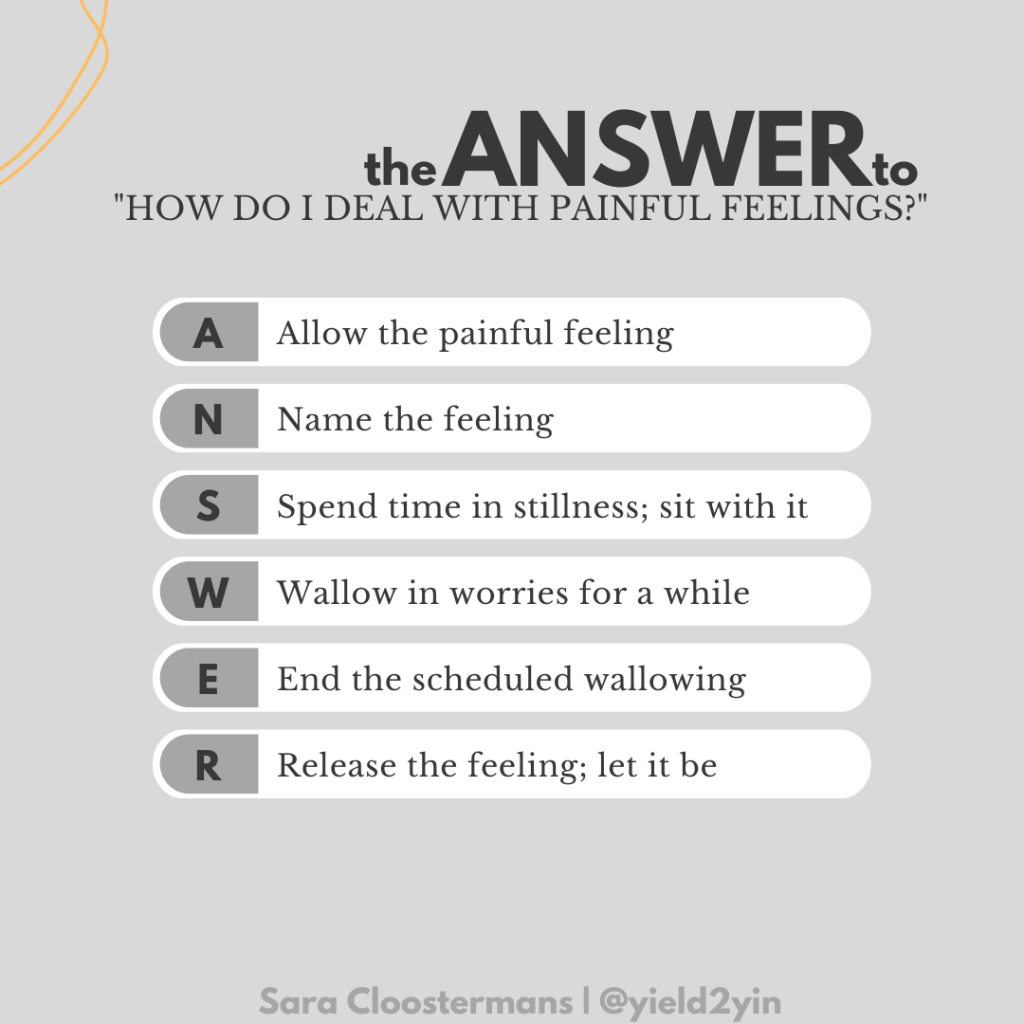
Yield2Yin
- Healing Card Deck: A Therapist’s Advice 55-Card Healing Deck by Sara Cloostermans
- Reading Recommendation: Lit from Within: Yoga, Teachings, and Practices to Illuminate our Inner Lives by Sarah Powers
- Mantra: I AM INTROSPECTION // repeat with diaphragmatic breathing
- Yin Yoga Asana: Butterfly Pose
